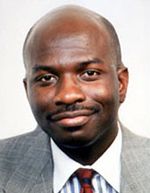Why Don't We Talk About Smoking and Celebrity Deaths?
Actress Suzanne Pleshette's recent death from "respiratory distress" was sad. Most of the articles about it briefly mention that she had been fighting lung cancer, but fail to mention that she had been a cigarette smoker in the past. Cigarette smoking is the single biggest cause of lung cancer.
It is rarely discussed, but tobacco has taken an extraordinarily heavy toll on Hollywood. The list of beloved celebrities killed by smokers' diseases is huge, and growing: George Harrison, Johnny Carson, Dana Reeve, Yul Brynner, Lucille Ball, Walt Disney, Nat King Cole, Joe DiMaggio, Michael Landon, Sammy Davis, Jr., Dean Martin, Betty Grable, and Babe Ruth to name just a few. Despite this, the failure to mention a person's smoking history in obituary columns is the norm in celebrity deaths. In just one glaring example, a four page obituary about the 2005 death of prominent news anchor Peter Jennings published by his own network, ABC, fails to mention the contribution that smoking made to Jennings' tragic and untimely death. A CNN's column about Jennings' death didn't mention it either. Something is up when major news organizations omit any mention the single most prominent cause of the death of a renowned news anchor.

 "The
"The 
 On the other hand, a stalled investigation may be part of a
On the other hand, a stalled investigation may be part of a 